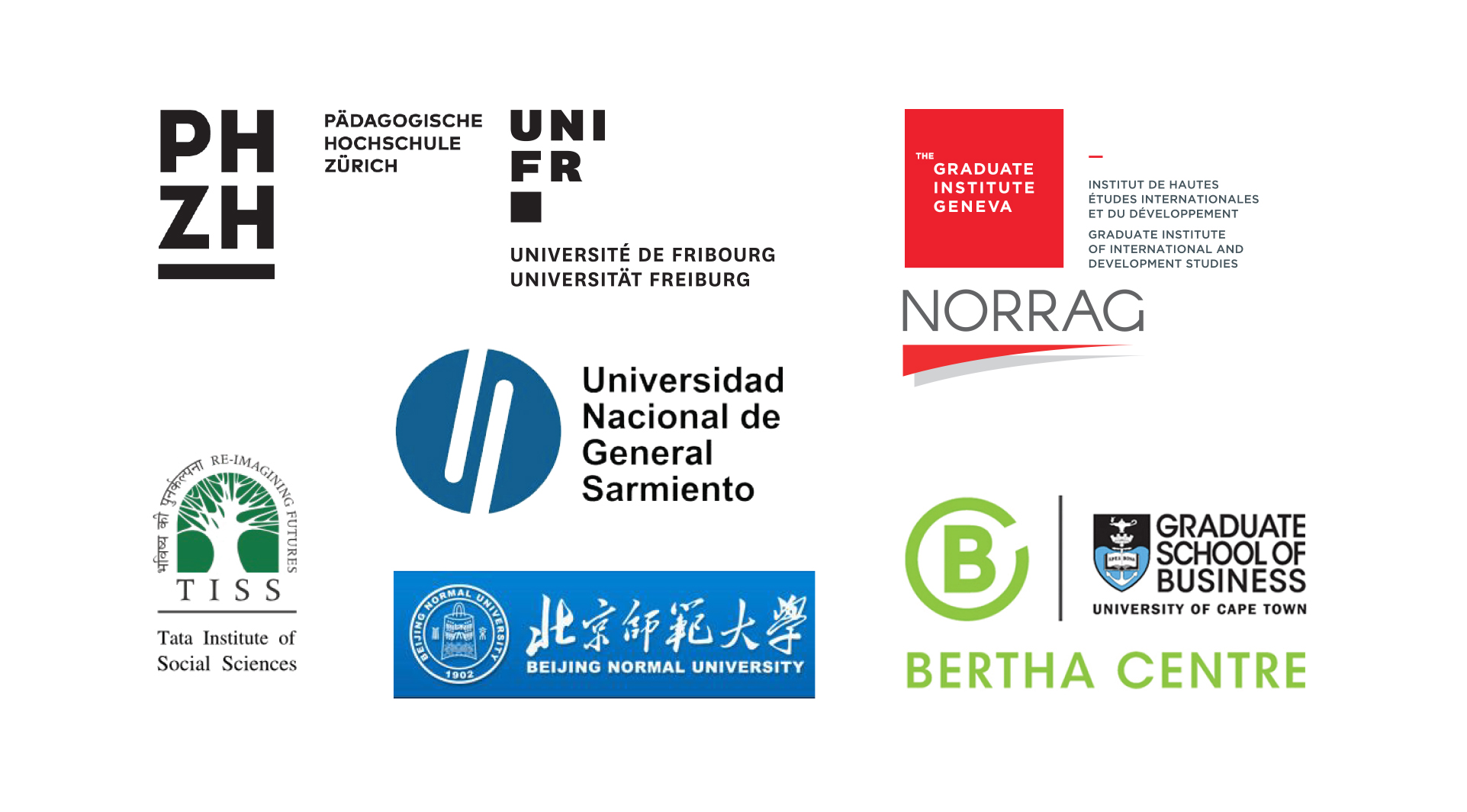SUDAC Innovative financing for education and development project update
The SUDAC IFE project has been engaged in several activities over the last six months (March 2019 – August 2019). It is well underway in producing the content for an introductory online course on Innovative Financing for Education, developing a comprehensive literature review and field data collection on four case studies. The COFER Innovative Financing for Education and Development: Case Studies and Multi-Media Material for ELearning project is partially funded by swissuniversities Development and Cooperation Network (SUDAC), six partner organizations from Switzerland, Argentina, China, India and South Africa are collaborating on this project to develop eLearning materials based on research and field-based case studies on the various innovative financing mechanisms used to complement more traditional forms of financing from government tax revenues and international aid.
- Online Course: Introduction to Innovative Financing for Education
NORRAG and the Graduate Institute have entered into an agreement with the UK based FutureLearn platform to provide a five week online introductory course on Innovative Financing for Education. The NORRAG team is working on finishing the first draft of the content. This online course will include original short articles, video interviews with global experts, various video and graphics explaining the structure and use of Innovative Financing mechanisms. The primary purpose of the online course will be to introduce learners to existing IF mechanisms that have been explored for the education sector and help them analyse and evaluate the adaptability of the mechanisms for specific education contexts.
- Literature Review
The NORRAG team conducted a comprehensive literature review of both grey and academic literature on IFE, which included over 150 individual articles. A systematic search selection and inclusion criteria helped eliminate about one third of the articles from this initial search. The initial draft of the literature review includes both grey and academic literature (almost 50 each), which includes an analysis for the types of mechanisms that have been researched, disciplinary approaches, definitions, rationales, along with the identified benefits and challenges.
- Case studies
Major progress has been made in conducting field case study research in the last six months. Teams conducted in depth interviews with key stakeholders (including some on video) in order to understand the operationalisation of Innovative Financing for Education. The case studies for the following cases are currently being drafted:
- Wipro Ltd’s Corporate Social Responsibility activities in education in India
- Impact Investment in Zaya Learning Lab in India
- N/Core’s venture philanthropy approach to stimulate the ecosystem of education non-profit industry in India
- Designing and implementation of a Social Impact Bond for youth labour market training in Buenos Aires, Argentina (with support from Felicitas Acostas, UNGS)
Additionally, initial discussions and a research proposal has been prepared by Archana Mehendale and Ajay Singh (TISS) to study India’s first domestically supported Development Impact Bond platform.
We are currently looking to develop further case studies in Africa, China and Latin America.
- Events
We also conducted two guest lectures during this period:
- April 1, 2019 at University of Fribourg – Introduction to Education Finance and Potential for Innovative Financing Approaches by Arushi Terway
- May 19, 2019 at The Graduate Institute – Introduction Innovative Financing Approaches in Education by Marina Avelar
- Innovative Financing: Examples and Challenges in the New PPP Aid Architecture –.
- Project partners:
- NORRAG, an associate programme of the Graduate Institute, Geneva,
- University of Fribourg (Switzerland)
- Zurich University of Teacher Education (Switzerland)
- Universidad Nacional de General Sarmiento in Buenos Aires (Argentina)
- Beijing Normal University (China)
- Tata Institute of Social Sciences in Mumbai (India)
- the University of Cape Town (South Africa)
Project summary on COFER website
For more information about the project please contact: arushi.terway@graduateinstitute.ch or joost.monks@graduateinstitute.ch

